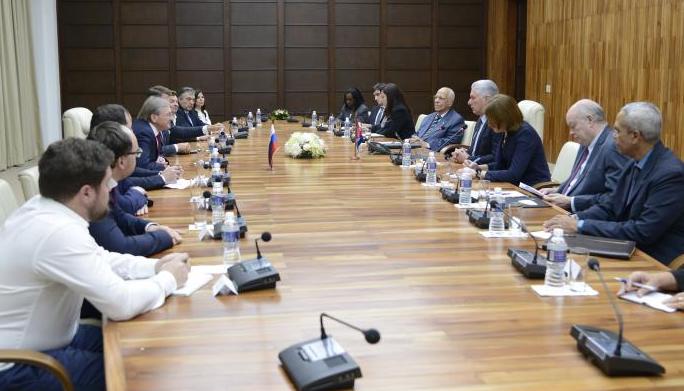Those who follow closely the evolution of the Cuban economy have probably noticed that the rhetoric of the island’s leaders regarding foreign investment has been toned down.
At the beginning of the revamping of the economic model, when foreign investment was discussed, care was taken to mention that it should be aimed at branches and sectors that were of interest to the country, and in a way that did not endanger national sovereignty.
The reality of a country in ruins, without any exportable line of business to guarantee the revenue the country needs to cover its imports, or raw materials, suffering from acute technological obsolescence in its industries, and with a suffocating foreign debt, has forced the authorities to lower the bar and throw the doors to the island wide open for anyone who wishes to invest in it. As we would say in colloquially, Cuba is now for sale to the highest bidder.
There is consensus that this is why Miguel Díaz-Canel recently visited four nations on three continents, asking businessmen and allied governments to come to Cuba to explore areas for possible joint business, and even to take charge of branches of the economy that Castroism is incapable of administrating.
The first response to this request came from Russia, with a large delegation of businessmen visiting Cuba a few weeks ago; one that, at times, seemed to want to "Russiafy" the Cuban economy, more or less in the style of the Sovietization that our economy saw in the times of the defunct Council for Mutual Economic Assistance (CAME).
The recent donation of 25,000 tons of wheat by Moscow is also part of this context. This was, obviously, not a disinterested gift ? though it is portrayed as such by our rulers. Rather, it was part of the reward for Cuba's support for Putin's criminal conduct in Ukraine.
The second response to Díaz-Canel's begging tour was provided by Algeria, which came to the island with a contingent of more than 60 representatives of public and private companies, all of them ready to, according to official announcements "make a qualitative leap in bilateral relations."
Prime Minister Manuel Marrero, during the celebration of the Cuba-Algeria Business Forum, had no choice but to admit: "We have very few material things to offer." Indeed, the Cuban government's own statistics recognize a high trade deficit for Cuba in the exchange of goods with the North African nation.
From 2016 to 2021 Cuba exported goods worth $5,431,000 USD to Algeria. On the other hand, it imported goods worth 1,535,645,000 dollars, for a trade deficit of 1,530,214,000 USD. In other words, the outlook for Cuba in the current relationship with Algeria involves buying a lot and selling little. What about the debt? Well, it will continue to rise, and Diaz-Canel will have to organize new tours pleading for its cancellation.
Visits by delegations from China and Turkey would be necessary for the Cuban president's efforts to bear fruit, though, in the case of the latter, Castroism may have to wait a long time, due to the devastating earthquake there.
While this is all happening, in terms of foreign intervention in the Cuban economy, the Castroist power structure devotes the little it produces to obtaining revenue in convertible currency. It does not care, apparently, that the population lacks that which its rulers sell abroad, all while the government focuses on meeting the needs of foreign tourism.
Thus, the regime sells medicines that are lacking at Cuban pharmacies, and sends toilet paper to hotels, which ordinary Cubans cannot find at national-currency stores, or at MLC ones, or at the stands run by self-employed vendors.

THERE ARE NO GUARANTEES TO INVEST AND ENTREPRENEURS WOULD BE ACCOMPLICES OF SLAVERY. Entrepreneurs, to invest in Cuba, wait a bit for Cuba to free itself, because now you can lose your investment. In addition, you become accomplices in slavery by paying the government and not directly to the employees, who would receive a crumb of the salary, let's say 10%, like the doctors of the so-called missions. That complicity with slavery could be penalized in a free Cuba. Wait a bit and the doors to foreign investment will be wide open.